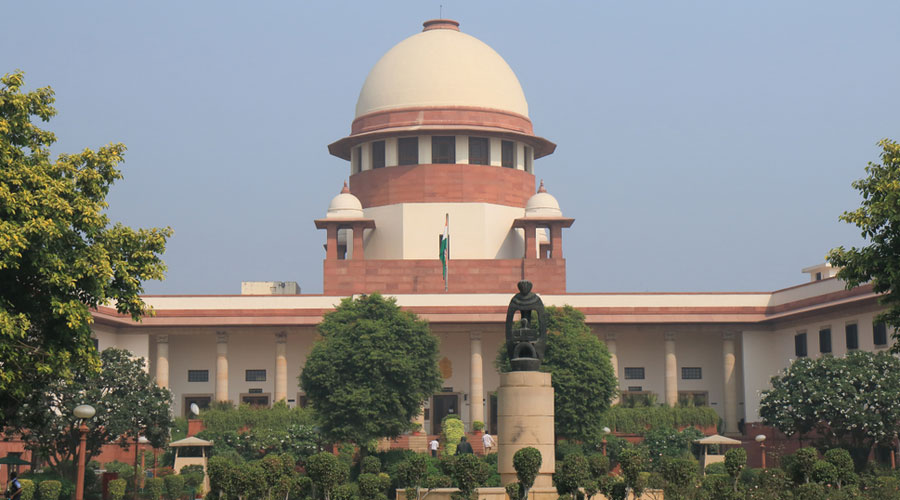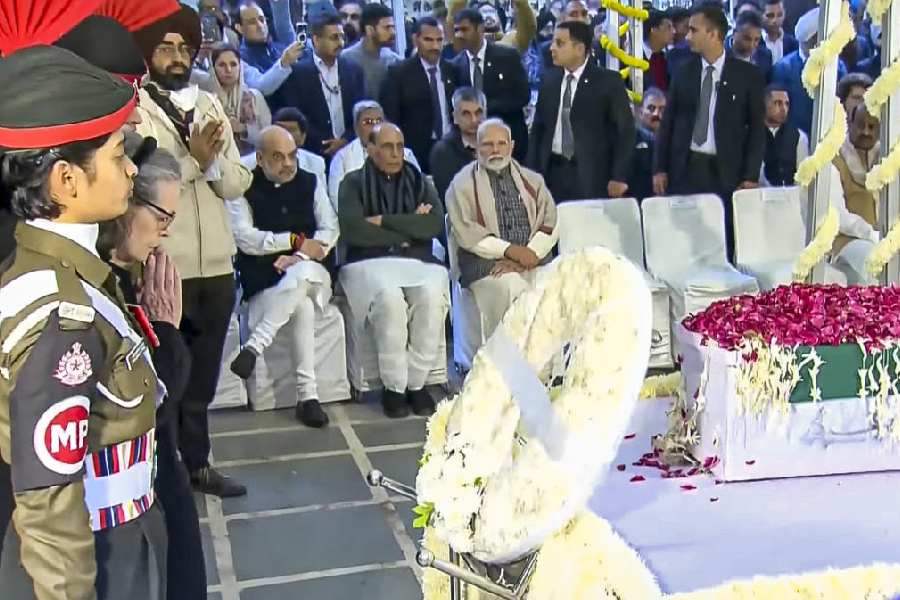The Supreme Court on Wednesday slammed the Centre for failing to clarify its stand on the waiver of interest on loans that became eligible for a six-month moratorium that ends on August 31 — and accused it of being keen to protect the interests of businesses but not the common man.
The loan moratorium, which was announced on March 27, was designed to help borrowers tide over the Covid-induced crisis. It also helped banks skirt a regulatory tripwire that obligates them in normal circumstances to recognise defaults of more than 90 days as bad loans on their books.
As a result of the moratorium, retail and home loan borrowers were allowed to stop making EMI payments without the risk of botching up their credit scores.
But while granting the moratorium, the Reserve Bank of India did not say anything about the waiver of accrued interest during the period of the moratorium. It was assumed, therefore, that this would be tacked on to the outstanding sum and automatically extend the tenure of the loan.
The even more contentious issue was whether banks would charge interest on the accrued interest — a sort of penal levy — and if it was fair to do so while granting the relief to borrowers.
The three-member bench of Justices Ashok Bhushan, R. Subhash Reddy and M.R. Shah said the government was “hiding behind the RBI” and refusing to clarify its stand on the subject despite a clear directive from the court.
“You cannot be interested only in business and not about the sufferings of people…. The problem has been created by your (Centre’s) lockdown. This happened because you (Centre) have locked down the whole country,” the court said.
“This is not the time to consider the (plight of) businesses. The plight of the people has to be considered also,” Justice Bhushan told solicitor-general Tushar Mehta who appeared for the Centre.
Justice Bhushan told the Centre through the solicitor-general: “You have to tell us your stand on two things: the Disaster Management Act and whether the interest on loans will be charged or not.”
The lockdown was announced under the provisions of the Disaster Management Act, 2005, which grants sweeping powers to the Centre.
The court was of the view that the Centre had ample powers under the act to provide all sorts of succour during a disaster like the present pandemic and there was no reason why it should not take a stand on waiver of interest on these loans.
Not all borrowers have sought a moratorium and many continue to pay their EMIs inclusive of interest — which raises the argument whether an interest waiver to one group of borrowers actually penalises the person who fulfils his contractual obligations.
The court was dealing with a PIL filed by an Uttar Pradesh-based businessman, Gajendra Sharma, and a few others who have challenged the constitutional validity of the RBI’s March 27 circular through which the moratorium was granted.
The petitioners contended that the failure to grant a waiver of interest while offering the moratorium was unconstitutional and amounted to a violation of Article 21 (the right to life and liberty).
There have been two submissions by the petitioners: first, that the entire amount payable including principal and interest should not be charged during the moratorium period.
Second, at least the demand of interest on interest should not be made and the relief ought to be extended by the Centre and the RBI.
In its affidavit filed earlier, the RBI had contended that interest was the main source of a bank’s income and a waiver would result in huge losses to banks.
Mehta, the solicitor-general, said the Centre and the RBI were working in close cooperation and it would be “unfair to say” that the government was “hiding” behind the apex bank.
“Our (the Centre’s) stand cannot be different from that of the RBI,” he said, indicating that the government may also not agree to a complete wavier of interest. However, the bench said the government must come out with its affidavit on the issue.
Senior advocate Rajiv Dutta, appearing for the petitioner, told the court that the Union government had still not filed its affidavit and its counsel had been pleading for a number of adjournments on the ground that he was seeking instructions from the finance ministry.
Mehta told the court that the RBI had taken a decision on August 6 that the question of interest waiver would be decided on a “sectoral basis” but did not elaborate.
The solicitor-general appeared to be referring to the monetary policy committee’s decision to start a new debt restructuring programme that allows banks to pick borrowers who will be allowed to reschedule their loans for another 24 months with some also qualifying for a moratorium. The new programme will start from September 6 when the RBI is expected to come out with a notification.
Senior advocate Kapil Sibal, appearing for some other petitioners seeking a similar interest waiver, submitted that as the moratorium period was to end on August 31, the default would accrue from September 1.
“I am only saying that till these pleas are decided, the extension does not end,” he said, suggesting that the moratorium ought to be extended.
The court said it would consider all the issues on September 1.











